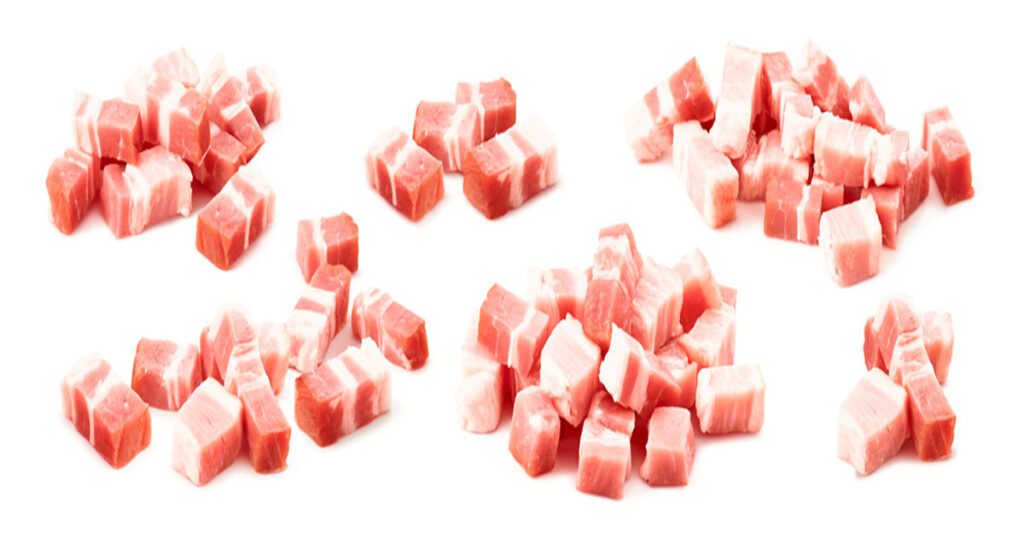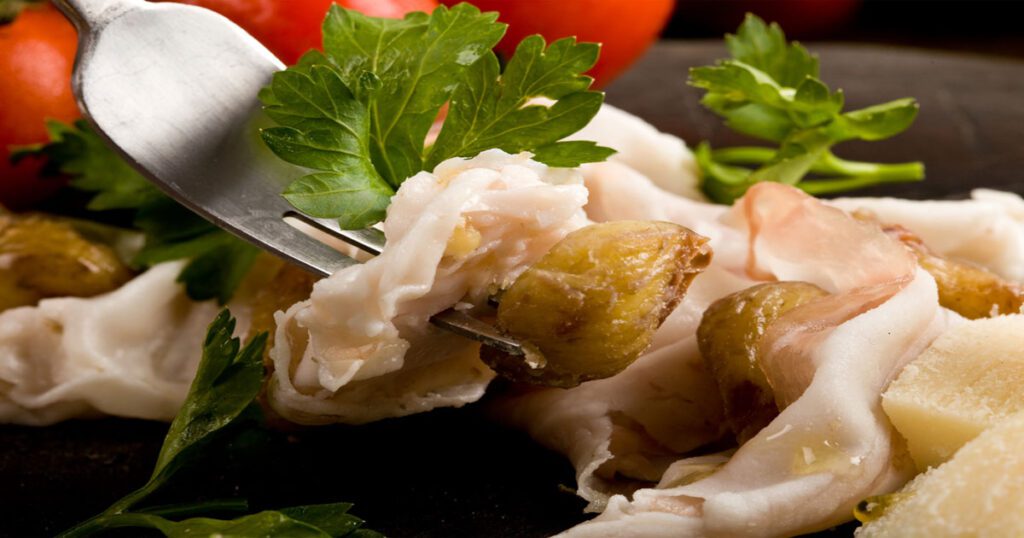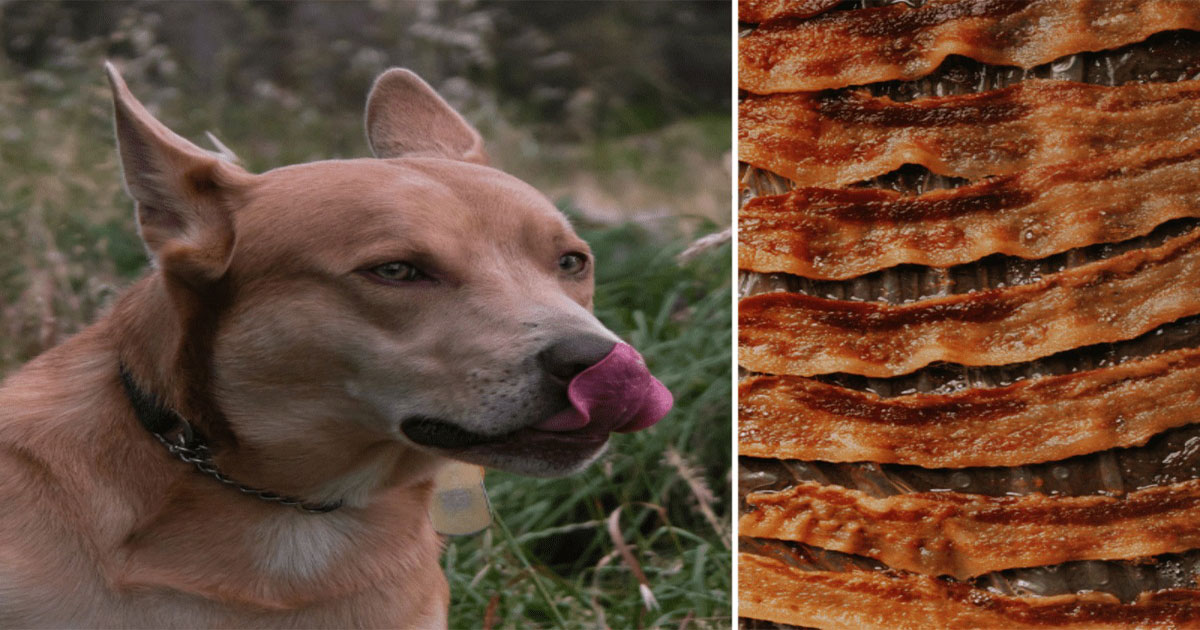As responsible pet owners, we strive to provide German Shepherds with a balanced and nutritious diet. However, when it comes to bacon, questions often arise about its suitability for our furry friends. Can German Shepherds safely eat bacon, or should it be avoided altogether?
While bacon is not toxic to German Shepherds, it is not considered a healthy or safe food for them. Bacon is high in fat, salt, and spices, which can cause digestive upset, pancreatitis, obesity, and other health issues in dogs. German Shepherds are prone to certain health conditions such as pancreatitis and gastrointestinal sensitivities, and feeding them bacon can exacerbate these problems.
In this comprehensive guide, we will delve into the topic, addressing the risks associated with bacon consumption for German Shepherds. Let’s uncover the truth and ensure the well-being of our German Shepherds.
Table of Contents
The Risks of Feeding Bacon to German Shepherds
When it comes to bacon, it’s important to understand the potential risks it poses to dogs, including German Shepherds. While bacon may be a delicious treat for humans, it can be problematic for our canine companions.
Firstly, bacon is high in fat, which can lead to weight gain and obesity in dogs. German Shepherds are already prone to certain health issues, such as hip dysplasia, and excess weight can exacerbate these conditions. Additionally, bacon is often seasoned with spices, flavorings, and preservatives that may not be suitable for dogs.
German Shepherds can also be sensitive to high sodium content, commonly found in bacon. Excessive sodium intake can put a strain on their kidneys and potentially lead to hypertension. Furthermore, bacon is often cooked with oils or fats that may be difficult for dogs to digest, potentially causing gastrointestinal upset.
Risks of Feeding Bacon to German Shepherds
| Potential Risks | Impact on German Shepherds |
| High-fat content | Weight gain, obesity, exacerbation of health issues |
| Sodium intake | Kidney strain, potential hypertension |
| Seasonings | Digestive issues, allergic reactions |
Potential Health Issues from Bacon Consumption
Bacon’s high fat and sodium content can have various health implications for German Shepherds. A diet rich in fatty foods like bacon can contribute to pancreatitis, a painful inflammation of the pancreas.
This condition can lead to vomiting, diarrhea, and discomfort for your furry friend. Moreover, the excessive fat content in bacon can also increase the risk of developing heart disease and other cardiovascular problems in German Shepherds.
It’s essential to note that German Shepherds have specific dietary needs. While they require a moderate amount of fat for energy, an excessive intake can lead to weight-related health issues. A high-fat diet can also impact their digestion and nutrient absorption, potentially leading to gastrointestinal problems.
Potential Health Issues from Bacon Consumption
| Health Issues | Impact on German Shepherds |
| Pancreatitis | Inflammation of the pancreas, vomiting, diarrhea, discomfort |
| Cardiovascular problems | Increased risk of heart disease and related conditions |
| Gastrointestinal difficulties | Digestive issues, nutrient absorption problems |
How Often Can I Feed Bacon to My German Shepherd?
While bacon should generally be avoided in a German Shepherd’s diet due to the associated risks, occasional small amounts can be given as a special treat. Feeding bacon to your German Shepherd should be done in moderation. Occasional small amounts as a treat can be acceptable.
If you choose to give your German Shepherd bacon, ensure that it is thoroughly cooked, free of spices and seasonings, and cut into small, bite-sized pieces. However, it’s always recommended to consult with your veterinarian before introducing any new food into your dog’s diet.
Bacon and Gastrointestinal Problems
Feeding bacon to German Shepherds can potentially lead to gastrointestinal problems, including digestive issues and pancreatitis. The high-fat content in bacon can be difficult for dogs, including German Shepherds, to digest. This can result in an upset stomach, diarrhea, or vomiting.

Additionally, the consumption of fatty foods like bacon increases the risk of pancreatitis in dogs. Pancreatitis is the inflammation of the pancreas and can cause severe abdominal pain, loss of appetite, and dehydration.
German Shepherds may be more susceptible to gastrointestinal problems due to their sensitive digestive systems. This breed can experience dietary sensitivities and intolerances more frequently than others.
Therefore, it is crucial to be mindful of their diet and avoid feeding them foods that may trigger digestive issues.
Allergies and Bacon for German Shepherds
Just like humans, German Shepherds can have food allergies, and bacon is no exception. While it is not a common allergen for dogs, some German Shepherds may develop allergies to bacon or certain ingredients used in its preparation.
Common symptoms of food allergies in dogs include itching, skin rashes, hives, excessive licking or scratching, and gastrointestinal issues such as diarrhea or vomiting.
Common Symptoms of Bacon Allergies in German Shepherds
| Allergy Symptoms | Impact on German Shepherds |
| Itching or skin rashes | Excessive scratching, discomfort |
| Hives | Raised, red welts on the skin |
| Gastrointestinal issues | Diarrhea, vomiting |
| Excessive licking/scratching | Signs of discomfort or irritation |
If you notice any of these symptoms after feeding your German Shepherd bacon, it’s important to consult with a veterinarian. If an allergy is confirmed, it is best to avoid feeding bacon or any other allergenic foods to your German Shepherd to prevent discomfort and potential health complications.
Feeding Guidelines for German Shepherds
Maintain a Balanced Diet
- Provide a well-balanced diet that meets the nutritional needs of your German Shepherd.
- Choose high-quality dog food formulated specifically for large breeds or German Shepherds.
- Look for a balance of protein, carbohydrates, healthy fats, vitamins, and minerals.
Portion Control
Follow the feeding guidelines provided by the dog food manufacturer based on your dog’s age, weight, and activity level.
- Avoid overfeeding to prevent obesity and related health issues.
- Regularly monitor your dog’s weight and adjust the portion size accordingly.
Regular Meal Schedule
- Establish a consistent feeding schedule for your German Shepherd.
- Divide their daily food into two or three meals to aid digestion and prevent bloating.
- Stick to a routine to promote healthy eating habits.
Healthier Alternatives to Bacon for Your German Shepherd
Lean Protein Sources
- Opt for lean meats such as skinless chicken, turkey, or fish. These provide essential proteins without excessive fat content.
- Cook the meat thoroughly and remove any bones or seasoning that may be harmful to your dog.

Fruits and Vegetables
Incorporate fruits and vegetables into your German Shepherd’s diet for added nutrients and variety. Offer safe options like carrots, green beans, apples, or blueberries as occasional treats or as part of their meals.
Healthy Treats
- Choose dog-friendly treats specifically designed for German Shepherds or large breeds.
- Look for treats made from natural ingredients, free from excessive additives or preservatives.
Remember to always consult with your veterinarian for personalized advice and recommendations based on your dog’s specific needs and health conditions.
Frequently Asked Questions
Q: Can German Shepherds eat cooked bacon?
Ans: It is not recommended to feed German Shepherds cooked bacon due to its high-fat content and potential health risks.
Q: How much bacon can a dog eat a day?
Ans: Dogs should not consume bacon daily. If given as an occasional treat, it should be in small, well-cooked pieces.
Q: My dog ate cooked bacon, what should I do?
Ans: Monitor your dog for any signs of discomfort or digestive issues. Contact your veterinarian if you notice any unusual symptoms or if your dog ate a large amount of bacon.
Q: What should I do if my dog ate raw bacon?
Ans: Raw bacon can carry a higher risk of bacterial contamination. Contact your veterinarian for guidance, as they may recommend monitoring your dog or taking preventive measures.
Q: Can raw bacon kill a dog?
Ans: Raw bacon carries a risk of bacterial contamination, which can lead to serious health issues. While it may not directly kill a dog, it can cause severe illnesses.
Q: Benefits of bacon for dogs?
Ans: Bacon is not considered a beneficial food for dogs. Its high fat and sodium content can contribute to weight gain, digestive issues, and potential health problems.
Conclusion
In conclusion, while bacon may be a tempting treat for humans, it is not the best choice for our beloved German Shepherds. The high-fat content, sodium levels, and potential for digestive issues and allergies make it a risky option for their diet. Instead of bacon, opt for lean protein sources, fruits, vegetables, and specially formulated treats for German Shepherds.
By making informed choices and consulting with your veterinarian, you can ensure that your German Shepherd stays healthy, happy, and safe. Remember, it’s better to be cautious when it comes to bacon and prioritize the long-term health of your loyal companion. Good luck!

I’m David, an expert contributor and writer, with two furry friends of my own, I know the challenges of raising and caring for dogs. From training to nutrition and health, my goal is to provide valuable insights and advice to help create strong bonds and happy, healthy lives. Find me in Twitter.




